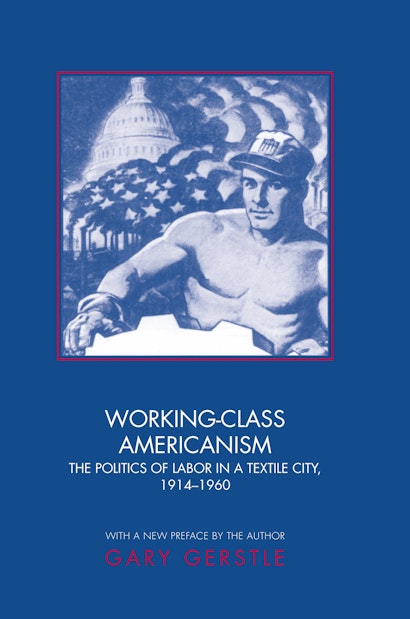In this classic interpretation of the 1930s rise of industrial unionism, Gary Gerstle challenges the popular historical notion that American workers’ embrace of “Americanism” and other patriotic sentiments in the post-World War I years indicated their fundamental political conservatism. He argues that Americanism was a complex, even contradictory, language of nationalism that lent itself to a wide variety of ideological constructions in the years between World War I and the onset of the Cold War. Using the rich and textured material left behind by New England’s most powerful textile union—the Independent Textile Union of Woonsocket, Rhode Island—Gerstle uncovers for the first time a more varied and more radical working-class discourse.
Gary Gerstle is Professor of History and Director of the Center for Historical Studies at the University of Maryland, College Park. He is the author of the forthcoming book American Crucible: Race and Nation in the Twentieth Century (91��ɫ).
"The transformation of ethnically insular workers into passionate American activists is an important story, which Gerstle recounts with unusual subtlety. . . . No one has explored the meaning of Americanism to workers with more intelligence and insight."—Alan Brinkley, New York Review of Books
"Scintillating. . . . [Gerstle] uses the method [of social history] with striking originality to tackle the thorny questions of Americanism."—Alan Dawley, The Nation
"[A] fascinating new book. . . . One of the great feats of this book is Gerstle's ability to show that intellectual history is not some ethereal, separable history of abstract 'ideas' but is rather a product of class relations born at the workplace."—Dana Frank, In These Times
"The most provocative account of working-class politics in the 1930s and 1940s."—John Bodnar, Journal of American History
"[A] pathbreaking, impeccably researched history. . . . The sheer scope of this study . . . is breathtaking."—Richard M. Vallely, International Labor and Working Class History
"A remarkably rich and thoroughly rewarding study of life, labor, and politics in a 20th century industrial community."—Stuart M. Blumin, Labor History
"Important. . . . To read Gerstle . . . is to think a little more freely of this country's possibilities. . . . [T]he sobriety and sheer depth of Gerstle's engagement with real Americans' struggles spells relief from tributes to 'forgotten warriors' that read like old placards in a May Day parade. Study 'the people' here first."—Jim Sleeper, Los Angeles Times Book Review
No known hazards or warnings
Accessibility Features
-
Unknown accessibility
-
Table of contents navigation
-
Single logical reading order
-
Index navigation
-
No known hazards or warnings


